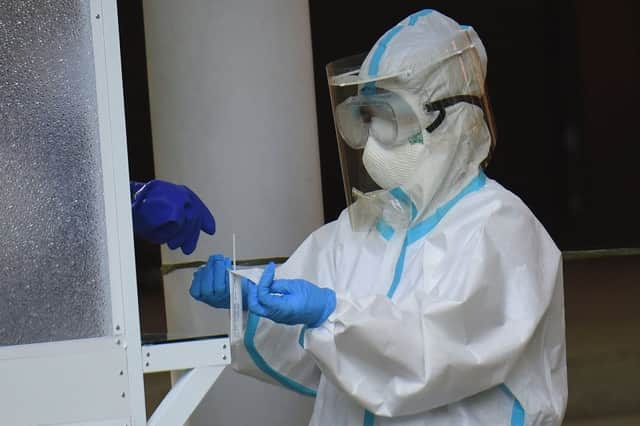A new coronavirus strain that some say could be '10 times more infectious' has been discovered - but is it really more dangerous?


The Philippines is studying a mutation of coronavirus which could be even more infectious than the original strain.
The mutation, called D614G, is now considered the dominant strain of the virus, and has been found in Southeast Asia, after it had been detected previously in other regions around the world, such as Europe and the United States.
Advertisement
Hide AdAdvertisement
Hide AdThe Philippines, which has suffered the highest outbreak in South East Asia, is now studying the mutation at the Philippine Genome Center, to understand its threat. The mutation was detected in the Philippines in nine randomly selected positive Covid-19 tests collected in Quezon City last month.
In a virtual briefing on Monday 17 August, Philippines’ Health Undersecretary, Maria Rosario Vergeire explained the mutation “is said to have a higher possibility of transmission or infectiousness, but we still don’t have enough solid evidence to say that that will happen.”
A total of 45 cases of the strain have now been found in Malaysia.
Where did the Malaysian cases come from?
The 45 new cases of the mutated virus are thought to have originated from a traveller returning from India who breached the imposed 14 day home quarantine, which is in place for travellers from high risk countries.
Advertisement
Hide AdAdvertisement
Hide AdMalaysian authorities have since sentenced the man to five months in prison and fined him for breaching quarantine.
‘People need to be wary’
Malaysia’s Director-General of Health Noor Hisham Abdullah warned that the new mutation could make existing studies on possible vaccines obsolete.
In a Facebook post, he wrote, “People need to be wary and take greater precautions because this strain has now been found in Malaysia.
“The people’s cooperation is very needed so that we can together break the chain of infection from any mutation.”
What do health professionals say about the strain?
Advertisement
Hide AdAdvertisement
Hide AdA peer-reviewed study published by Cell revealed D614G’s mutation improved infectiousness in cell cultures under laboratory conditions, potentially explaining how it quickly became the most dominant strain in the world.
D614G is now the main variant of the virus found in Europe and the US, and it was also recently detected in China. However, the World Health Organization has stated that there is not yet evidence from epidemiology to suggest the strain causes a more severe disease than the original.
Speaking about the infectiousness of the mutation, Benjamin Cowling, Head of Epidemiology and Biostatistics at the University of Hong Kong, said that this mutation is not necessarily more infectious, explaining, “It’s more commonly identified now than it was in the past, which suggests that it might have some kind of competitive advantage over other strains of Covid-19.”
He also criticised Malaysia’s Director-General of Health for suggesting the strain could be 10 times more infectious than the original strain, without citing a study.
Cowling explained the strain “might be a little bit more contagious”, but added, “we haven’t yet got enough evidence to evaluate that, but there’s no evidence that it’s a lot more contagious.”